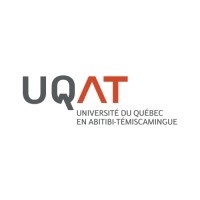
Open
Université du Québec en Abitibi-Témiscamingue
Last Update: January 24, 2025
QC, Canada
UQAT: Take advantage of state-of-the-art university facilities
Researchers And Facilities
At a glance
Funding available
Financing goals
No objectives are currently available
Eligible Funding
- No Condition
Timeline
- Open Date : January 25, 2022
Eligible candidates
Eligible Industries
- All industries
Location
- Quebec
Legal structures
- All legal structures
Annual revenue
- All revenue ranges
Organisation size
- All organization sizes
Audience
- Indigenous Peoples
- Rural or Northern Residents
Overview
Get access to world-class expertise, facilities and IP when you form a partnership with a university, college or health institution. Use the partnership to help solve complex problems, build proofs-of-concept, improve processes and performance, validate y
Activities funded
Université du Québec en Abitibi-Témiscamingue supports a diverse array of research projects, primarily focusing on environmental sustainability and resource management, especially related to boreal forests and mining reclamation. The eligible projects aim to advance knowledge and practical solutions in these areas through innovative and collaborative efforts.
- Prédire la croissance de la forêt boréale: an approach based on ecophysiological process analysis and modeling.
- Impact of planting trees on abandoned farmlands for diversity and carbon sequestration.
- Development of silvicultural programs for the resilience of Eastern Canada's commercial forests (MixCanada).
- Training in Applied Biotechnology for Environmental Sustainability (TABES).
- NSERC-UQAT Industrial Research Chair on mine site reclamation.
- Investigating the effects of invading earthworms on soil properties in forest ecosystems.
Examples of admissible projects:
$ 35,000
Developing adaptive forest carbon management strategies to offset industrial GHGs
$ 30,000
Implemented adaptive forest carbon management for industrial GHG offsets
$ 40,000
Examined the resilience of mixed commercial forests using advanced silvicultural programs
$ 35,000
Developed a new silvicultural program for mixed stands to enhance forest resilience
$ 30,000
Researched the diversity impact of tree planting on abandoned farmlands
$ 20,000
Conducted a detailed analysis of tree planting's impact on abandoned farmlands
Eligibility
Eligibility criteria for this grant are :
- Be affiliated with the Université du Québec en Abitibi-Témiscamingue
- Have an ongoing or proposed research project in the specified field
- Participate as a principal investigator or collaborator in an eligible research project.
Additional information
I'm sorry, it seems like a technical issue occurred in processing your question. Could you please rephrase or clarify your question so I can provide you with the information you need?
Apply to this program
Frequently Asked Questions about the Université du Québec en Abitibi-Témiscamingue Program
Here are answers to the most common questions about the Université du Québec en Abitibi-Témiscamingue. This section explains what the program is, how much funding is available, eligibility requirements, application deadlines, and other important details to help you determine if this grant is right for your business.
What is the Université du Québec en Abitibi-Témiscamingue?
How much funding can be received?
What expenses are eligible under Université du Québec en Abitibi-Témiscamingue?
What is the deadline to apply?
Is the Université du Québec en Abitibi-Témiscamingue a grant, loan, or tax credit?
Who are the financial supporters of the Université du Québec en Abitibi-Témiscamingue?
Who is eligible for the Université du Québec en Abitibi-Témiscamingue program?
Who can I contact for more information about the Université du Québec en Abitibi-Témiscamingue?
Where is the Université du Québec en Abitibi-Témiscamingue available?
Are Indigenous Peoples eligible for the Université du Québec en Abitibi-Témiscamingue program?
Apply to this program
More programs like this

Grant and FundingClosed
MAPAQ — Food Processing Program — Component 2
Ministry of Agriculture, Fisheries and Food (MAPAQ)Enhancing productivity through food industry automation assistance

Grant and FundingOpen
ESSOR – Component 1C: Support for investment projects (implementing a digital plan)
Investissement Québec (IQ)Support for investment projects in Quebec

Grant and FundingOpen
SCALE AI — Acceleration
Scale AI ClusterSupports Canadian AI startups and SMEs focused on value chains

Tax CreditsOpen
Development of E-Business Tax Credit (CDAE)
Investissement Québec (IQ)Tax credit for development of a Quebec e-business

Tax CreditsOpen
Research, Innovation and Commercialization Tax Credit (CRIC)
Gouvernement du QuébecRefundable tax credit for Quebec business R&D and precommercialization

Grant and FundingClosed
NovaScience Program - Support for projects in scientific culture and innovation
Gouvernement du QuébecNovaScience promotes scientific culture and innovation development

Grant and FundingOpen
Ecocamionnage Program — Logistics Project Component
Minister of Transport and Sustainable Mobility of QuebecGreenhouse emission reduction aid for freight transport

Grant and FundingClosed
Support for Innovation and Productivity for Québec manufacturing companies (SIPEM) - Part 1
PROMPTSupports technological innovation for Quebec manufacturing productivity

Grant and FundingLoans and Capital investmentsOpen
ESSOR – Component 2: Support for investment projects promoting productivity and business expansion
Investissement Québec (IQ)Supports business productivity and expansion through technological investment

Grant and FundingClosed
Support for Innovation and Productivity for Québec manufacturing companies (SIPEM) - Part 2
PROMPTBoost productivity through targeted technological innovations
Sign up to our platform to access the Université du Québec en Abitibi-Témiscamingue information sheet for free
Get access to 4,000+ programs, practical guides, personalized alerts, and an AI assistant to support your grant applications.